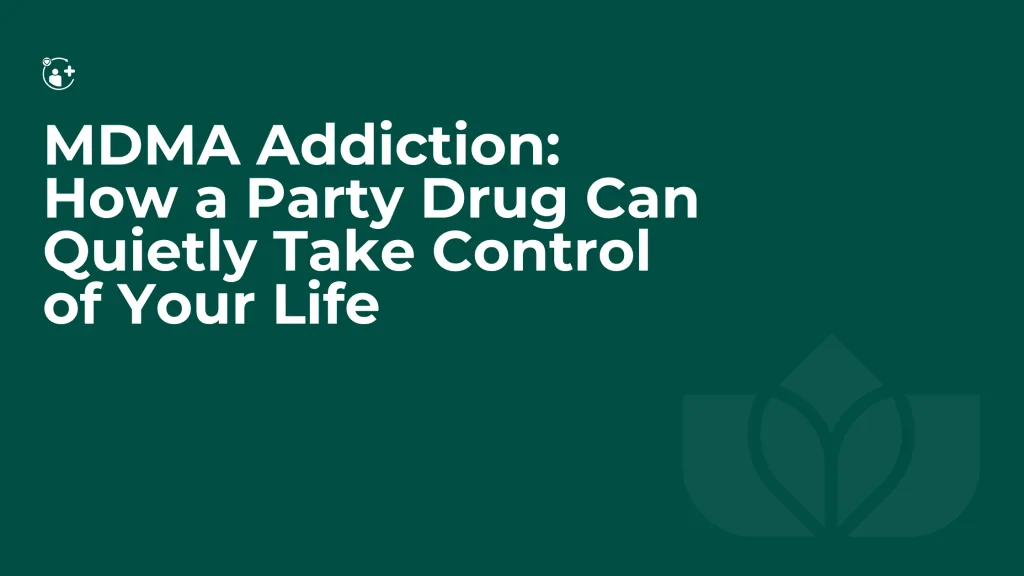
For many, MDMA is known as a party drug – associated with music festivals, clubs and late-night fun. But behind the lights and laughter lies a growing issue that is not talked about nearly enough. MDMA addiction is very real, and at TLC, we’ve seen how it can silently take hold of a person’s life.
While not everyone who uses MDMA becomes addicted, repeated use increases the risk of psychological dependence, emotional instability and long-term health issues. This blog explores what MDMA addiction looks like, why it happens and how recovery is possible.
MDMA (3,4-methylenedioxymethamphetamine), often referred to as ecstasy or molly, is a synthetic psychoactive substance that alters mood and perception. It increases the release of serotonin, dopamine and norepinephrine, producing feelings of euphoria, emotional warmth and heightened sensory awareness.
It is most often used recreationally, especially in social settings. The drug is known for making users feel more connected to others, which is part of its appeal. However, this artificial sense of connection is short-lived, and when the drug wears off, it can leave users feeling depleted and depressed.
One of the biggest misconceptions about MDMA is that it’s not addictive. While it may not create the same physical dependency as substances like heroin or alcohol, MDMA addiction often presents in the form of psychological dependency.
Some common signs of MDMA addiction include:
Over time, the brain becomes less capable of producing serotonin naturally, leading to emotional instability and increasing the desire to use again.
MDMA affects the brain’s chemistry in a profound way. Chronic use can lead to:
These effects may seem distant during the early stages of use, but over time, they begin to impact work, relationships and mental health in deeply damaging ways.
One of the hidden dangers of MDMA addiction is the emotional fallout. Because the drug creates artificial feelings of love, connection and euphoria, users may find it difficult to experience these emotions naturally once the drug is no longer in their system.
This can create a cycle of loneliness, anxiety and further use. Many of the clients we see at TLC describe a deep emotional numbness that crept in after months or years of using MDMA – a feeling of being cut off from their true selves.
Our approach focuses on helping people reconnect with their emotions in a safe, healthy and authentic way.
At TLC, we offer a non 12-step residential programme for individuals struggling with MDMA addiction. We believe that every person’s experience with addiction is different, which is why our care is personalised, trauma-informed and deeply compassionate.
Our treatment includes:
We do not use rigid systems or labels. Instead, we work with each person to understand their story and help them find their own path to recovery.
Recovery from MDMA addiction is not just about stopping the drug. It’s about learning how to live again – how to connect with yourself and others in meaningful, sober ways.
Clients who leave TLC often say they feel more alive, more present and more in control of their lives. We help individuals rediscover joy, purpose and resilience without relying on substances.
This is where real healing begins.
If you or someone you care about is struggling with MDMA addiction, TLC can help. You are not alone, and recovery is possible with the right support.
Call 020 3098 7007, email info@tlcrehab.co.uk or chat with us via WhatsApp Live Chat.
TLC Rehab – Truly Life Changing